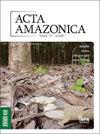容积产量系数:调节亚马逊木材虚拟信用的关键
IF 0.8
4区 环境科学与生态学
Q4 ECOLOGY
引用次数: 0
摘要
在巴西,所有原生林产品和副产品的运输和储存都必须在DOF(林业原产地文件)系统中进行登记。这个计算机化平台的存在是为了支持管制机构减少非法获得的林产品的销售。然而,这一工具在实现其目标方面仍然收效甚微,因为系统的漏洞允许非法木材被获取并作为合法木材进入系统。本研究的目的是测试工业规模锯木厂的体积屈服系数(CRV)是否符合巴西立法规定的35%。重点是针对一个漏洞,允许在DOF系统中通过将原木转化为木材来积累虚拟积分。为此,我们以90根原木为样本,估计了巴西亚马逊地区一家木材公司使用的19种商业树种的锯木厂的CRV和平均百分比产量。估计CRV为24.6±2.4,不确定性为9.9%。平均CRV与DOF提出的结果差异非常显著(p < 0.001),差异为10.35%。根据这些结果,观察到的收益与立法建议的收益之间的差异可以产生虚拟日志信用的积累。有了这样的积累,管理人员在获得新的伐木许可证时遇到困难,因此,不能满足锯木厂能力的实际原木需求。本文章由计算机程序翻译,如有差异,请以英文原文为准。
Volumetric yield coefficient: the key to regulating virtual credits for Amazon wood
ABSTRACT In Brazil, all transport and storage of native forest products and by-products must be registered within the DOF (Document of Forestry Origin) system. This computerized platform exists to support control agencies in reducing the sale of forest products obtained illegally. However, this tool still shows only modest results in fulfilling its objectives, since gaps in the system allow illegal wood to be acquired and enter the system as legal wood. The objective of this study was to test whether the volumetric yield coefficient (CRV) of a sawmill on an industrial scale corresponds to the 35% established by Brazilian legislation. The focus was directed at a loophole that allows the accumulation of virtual credits in the DOF system by turning logs into lumber. For this purpose, we estimated the sawmill’s CRV and mean percentage yield of 19 commercial species used by a timber company in the Brazilian Amazon with a sample size of 90 logs. The estimated CRV was 24.6 ± 2.4, showing 9.9% uncertainty. The mean CRV differed highly significantly (p < 0.001) from that proposed by the DOF, with a 10.35% difference. Based on these results, the difference between the observed yield and that proposed by the legislation can generate the accumulation of virtual log credits. With this accumulation, managers encounter difficulties in acquiring new logging permits and, consequently, do not meet the actual demand for logs to the sawmill’s capacity.
求助全文
通过发布文献求助,成功后即可免费获取论文全文。
去求助
来源期刊

Acta Amazonica
PLANT SCIENCESECOLOGYZOO-ECOLOGY
CiteScore
1.70
自引率
0.00%
发文量
34
审稿时长
22 weeks
期刊介绍:
Acta Amzonica is a multidisciplinary, peer-reviewed, open access, free-of-charge scientific journal for research in and about the Amazon region, published since 1971 by the Instituto Nacional de Pesquisas da Amazônia - INPA, in Brazil.
The journal publishes quarterly issues containing articles and short communications in English across a broad range of disciplines, including Agronomy and Forestry, Animal Sciences and Fisheries, Biodiversity and Conservation, Biotechnology, Chemistry and Pharmacology, Environmental Sciences, Food Sciences, Geosciences, Health Sciences, Human and Social Sciences, and Materials Technology.
 求助内容:
求助内容: 应助结果提醒方式:
应助结果提醒方式:


